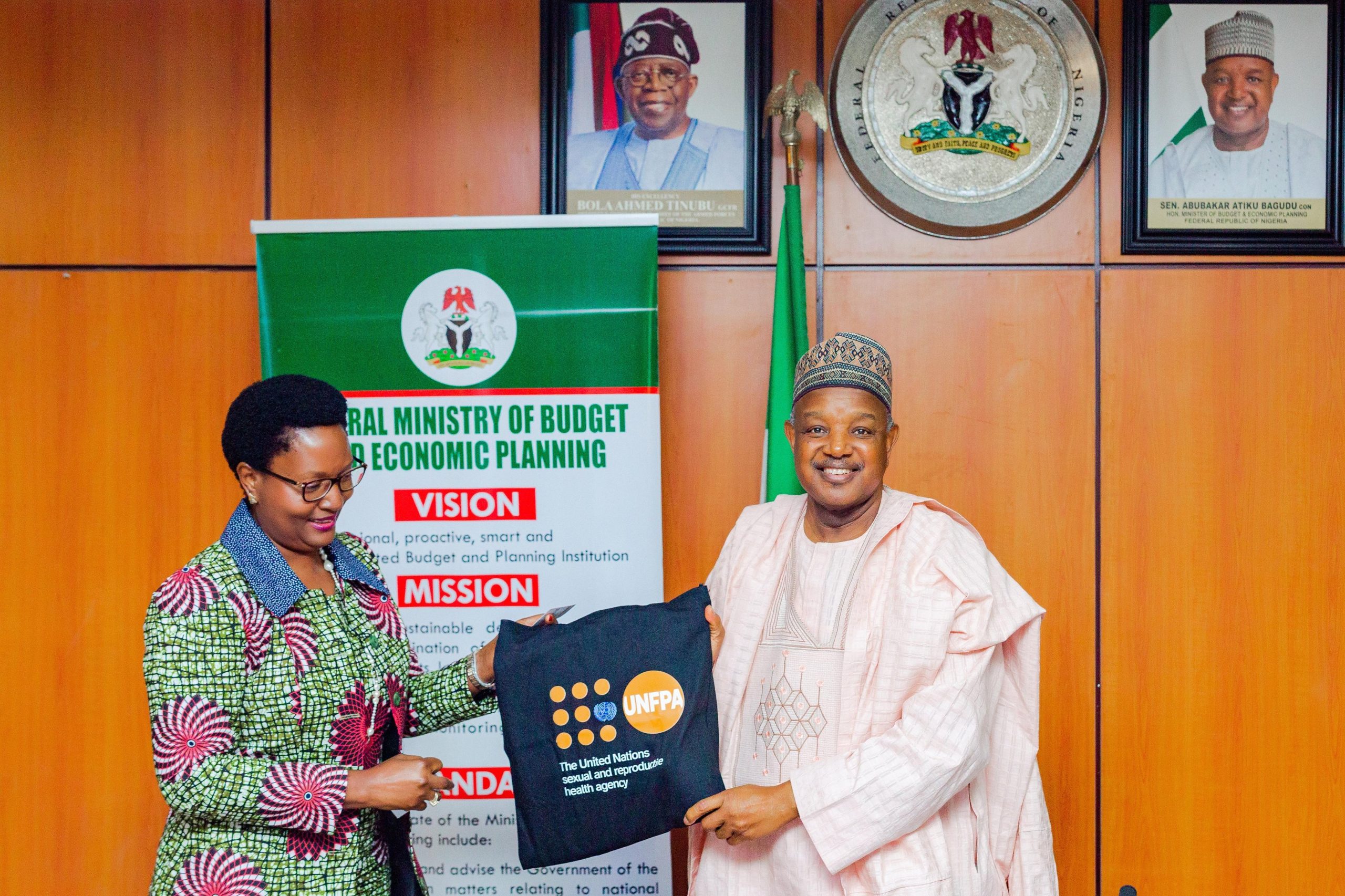


The Federal Government has appealed to its development partners to design interventions that are closely aligned with Nigeria’s cultural and faith-based values, stating that such alignment is crucial for achieving stronger and more sustainable results.
The Minister of Budget and Economic Planning, Senator Abubakar Bagudu, made this call in Abuja on Monday during a courtesy visit by the newly appointed United Nations Population Fund (UNFPA) Resident Representative, Ms. Muriel Mafico.
Senator Bagudu explained that programs must resonate with the core beliefs of the populace to be successful.
He stated: “Nigeria is a faith-driven society. Both the Bible and the Quran encourage responsible parenting and family life. When we reflect these values in our approaches, our results are stronger and more sustainable.”
The Minister informed the development partners that the government’s current reform focus is not just on increasing expenditure, but on spending better. He clarified that ongoing reform initiatives concentrate on ensuring that resources are directly connected to tangible results.
According to the Minister: “Our focus is not just on spending more, but on spending better. The ongoing reforms are challenging but essential steps towards sustainable growth. Development partners like UNFPA play a vital role in helping us strengthen that link between investment and impact.”
Senator Bagudu also invited the UNFPA to contribute to the ongoing development of Nigeria’s 2026–2030 National Development Plan, which is being structured to align with the long-term Agenda 2050 framework aimed at creating a more inclusive and empowered economy.
He said: “We are finalising our next five-year plan, and we welcome UNFPA’s input to ensure that human capital development remains at the centre of our national priorities.”
In her response, the UNFPA Resident Representative, Ms. Muriel Mafico, praised the Minister’s leadership and confirmed the agency’s willingness to continue supporting Nigeria’s population and development agenda.
“Context matters,” she noted. “We must design programmes that are culturally sensitive and community-owned. Our focus is to ensure that women, girls, and young people are not left behind.”
She further gave assurance that UNFPA remains committed to supporting Nigeria’s reform objectives and the national census exercise, describing it as a vital tool for evidence-based planning.
The United Nations Population Fund is committed to enhancing collaboration with the Federal Government of Nigeria in promoting population management, reproductive health, and gender equality.